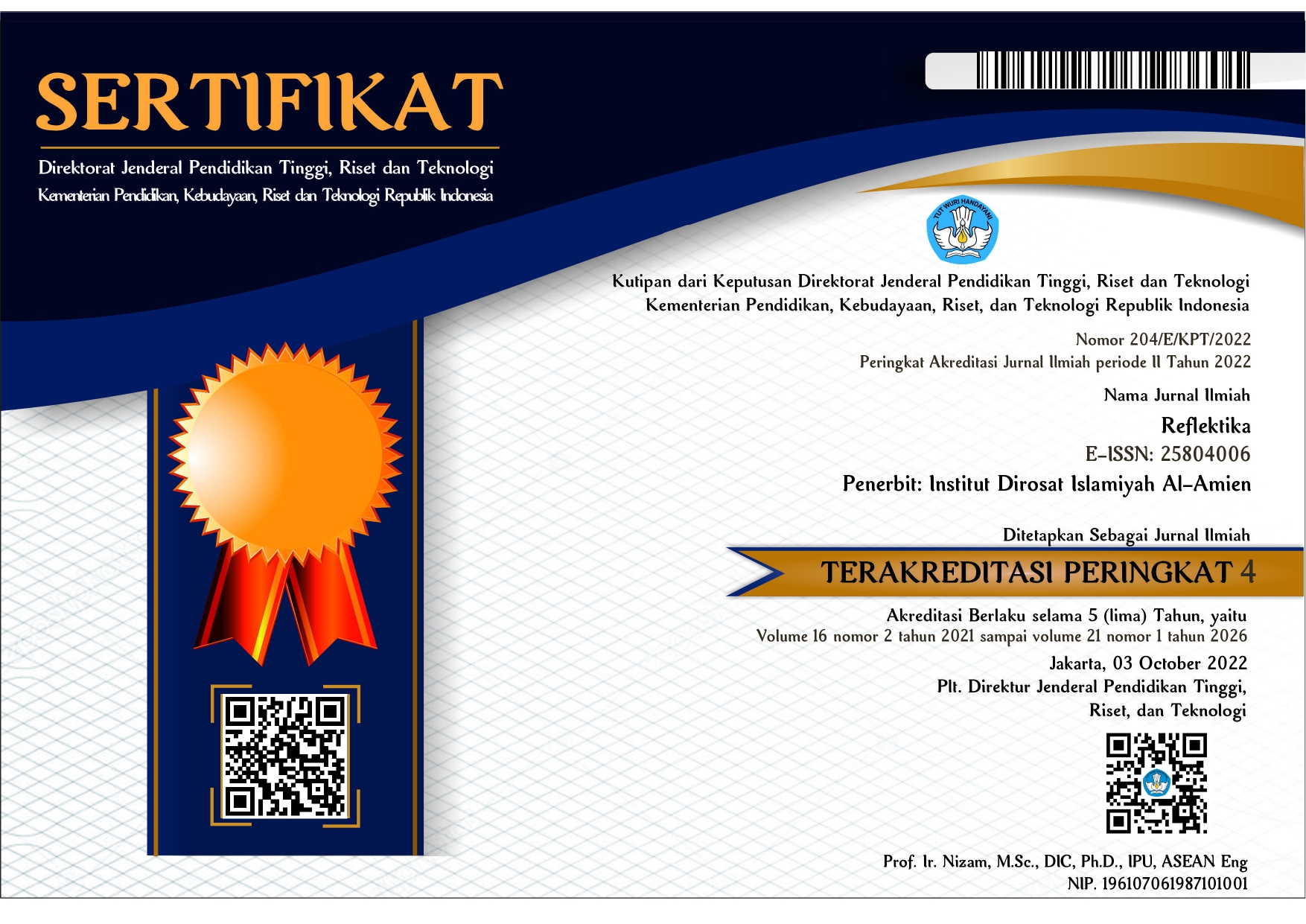PERILAKU VOTER DALAM MEMILIH PEMIMPIN POLITIK DAN TINJAUAN ISLAM TERKAIT CIRI-CIRI PEMIMPIN
Abstract
The behavior of voters (voters) in choosing political leaders (people's representative council, regents, governors to the President) is a reflection of a country's democracy. How voters see the leader candidate, assess the focus of the issues brought by the candidate leader, to decide whether to vote or not to vote in general elections, these three are themes that need to be studied to preserve government that comes from the will of the people and in accordance with the aspirations of the people through voting (vote). ). Islam as a guiding value in living life needs to be included in this study, especially regarding the characteristics of an appropriate leader for society. Because Islam is a guide to religious values, the Islamic review in this study is not specific to political leaders, but to the characteristics of someone who deserves to be a leader in various matters. The purpose of this study is to understand problems regarding voter behavior in selecting political leaders and to describe ibrah in Islam regarding the characteristics / criteria of leaders for the community. This study found that people's behavior in selecting political leaders is heavily influenced by rational considerations and socio-cultural closeness. Meanwhile, in an Islamic review, the characteristics of a leader for the community are someone who has more capacity/competence than the community in general.
Keywords
References
Caplan, Bryan. The Myth of the Rational Voter. New Jersey: Princeton University Press, 2006.
Elsam. “Shohifatul Madinah Piagam Madinah.†Lembaga Studi & Advokasi Masyarakat, n.d.
Graziosi, Dean. Millionaire Success Habits. California: Growth Publishing, 2017.
Groenendyk, Erick W. Competing Motives In The Partisan Mind. USA: Oxford University Press, 2013.
Hardy, Darren. The Compound Effect. Philadelphia, U.S: SUCCESS Media Da Capo Press, 2013.
Kamil, Mohamad Jailani. “Makna Ulil Amri Menurut Pandangan Quraish Shihab Dan Sayyid Quthb Dalam Surat An Nisa’ Ayat 59.†UIN Sunan Ampel Surabaya, 2014.
Kholil, Nur Ikhsan. “Nilai-Nilai Kepemimpinan Dalam Kisah Al-Qur’an.†Institut PTIQ Jakarta, 2022.
Maulana. “Reinterpretasi Makna Al-Qowiyul Amin Dalam Al-Qur’an Surah Al-Qashash Ayat 26.†Semiotika-Q Vol.1, No.1 (June 2021).
Mun’im, Muhtadi Abdul. Metodologi Penelitian Untuk Pemula. Sumenep: Pusdilam, 2014.
Norris, Pippa. Electoral Engineering. USA: Cambridge University Press, 2004.
Raden, Sahran, Intam Kurnia, and Randy Atma R. Massi. Partisipasi Politik Dan Perilaku Pemilih. Yogyakarta: KPU Porvinsi Sulawesi Tengah, Cakrawala, 2019.
R.Lau, Richard, and David P Redlawsk. How Voters Decide. UK: Cambridge University Press, 2006.
Sohib, Muhammad. Al-Qur’anul Kariim. Depok: SABIQ, 2009.
Sugiyono. Metode Penelitian Kuantitatif Kualitatif Dan R&D. Bandung: Alfabeta, 2011.
Sutriani. “Muhammad Sebagai Pemimpin Agama Dan Kepala Negara.†Sulesana Volume 6 Nomor 2 (2011).
DOI: 10.28944/reflektika.v17i2.878
Refbacks
- There are currently no refbacks.


.png)

